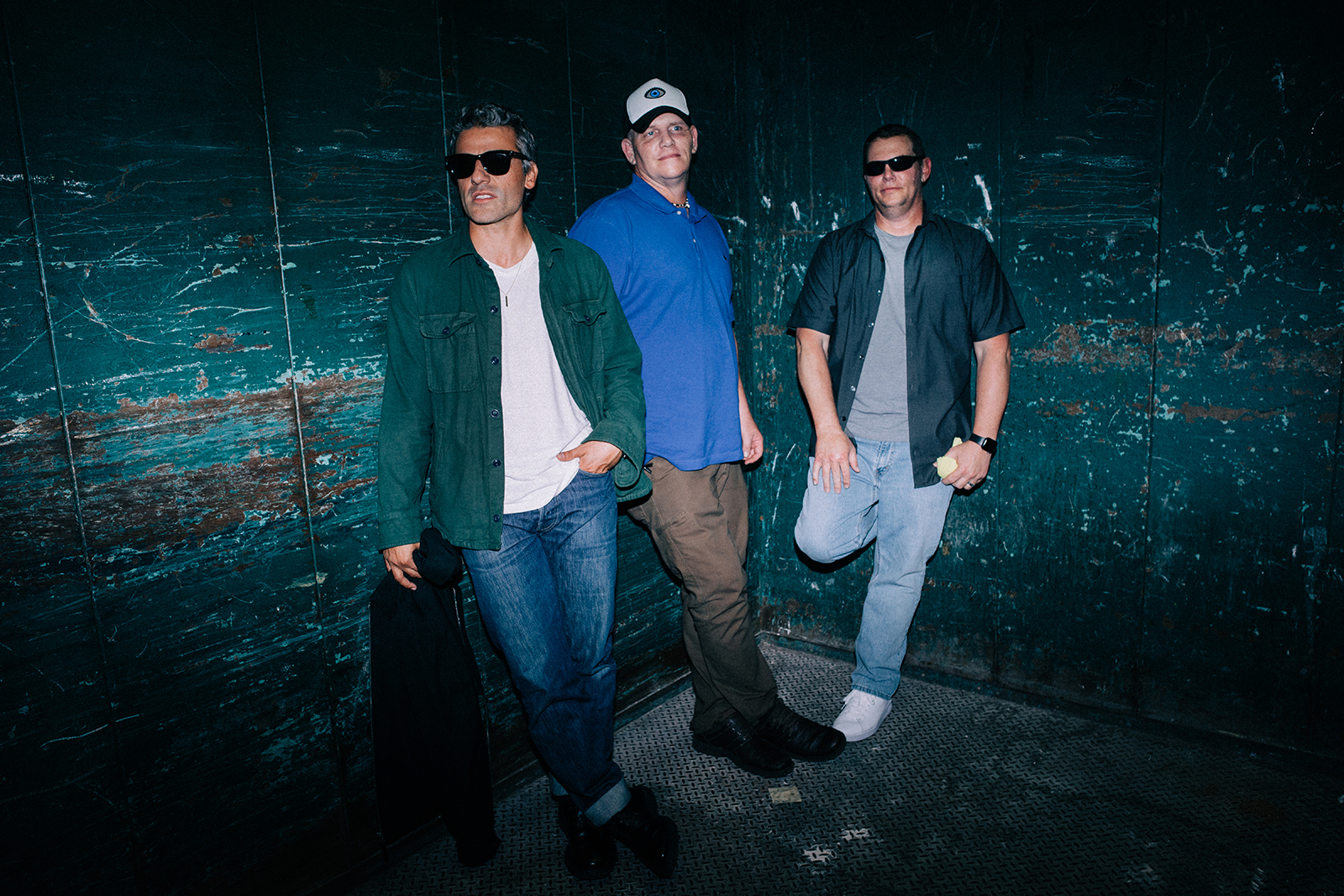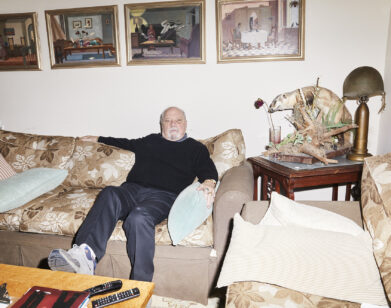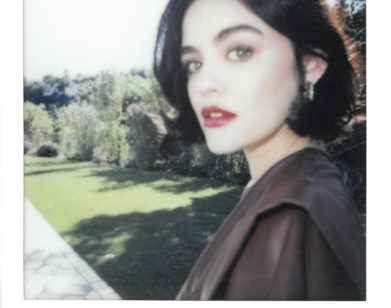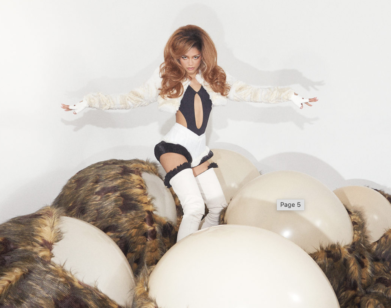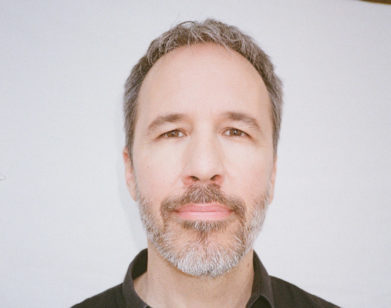HEAD WOUNDS
Oscar Isaac Cries Over Comic Books
From X-Men to Star Wars to Dune, Oscar Isaac has remade himself as the go-to actor for sci-fi blockbusters after his early career as an indie darling. Now, he’s on a quest to tell his own epic stories on a smaller scale, starting with the production company he formed with his wife, Danish film director Elvira Lind. Mad Gene Media’s first project—the gripping, strikingly illustrated graphic novel Head Wounds: Sparrow—is particularly personal for Isaac, whose childhood friends Bob Johnson and John Alvey played a huge role in bringing the undead tale to life. To celebrate the book’s print release, Isaac pried the self-taught screenwriters and his long-time pals John Alvey and Bob Johnson about their origin story, how to avoid spiritual clichés, and why there’s no crying in comics.—CAITLIN LENT
———
ISAAC: All right, John, you run this.
ALVEY: Well, once upon a time—
ISAAC: Introduce us, talk about how we met.
JOHNSON: Isaac wants that.
ALVEY: Just a poor boy, am I?
ISAAC: High school.
ALVEY: Yes.
ISAAC: Bob was a force that drove different types of people together.
ALVEY: I don’t know if you notice that, but the jocks, the weird kids, the drama kids, music kids, all had a circle around him. Everything was a force of him just being able to talk to anyone and wanting to be around cool people.
ISAAC: Yeah.
ALVEY: That’s how I always felt about it.
JOHNSON: That’s true.
ISAAC: I was a freshman in high school. You were still in—
JOHNSON: 10th grade?
ALVEY: You were in 10th grade, so we were just a year ahead.
ISAAC: And we met, you and I met in the choir room.
JOHNSON: Yeah. Chorus.
ISAAC: You were in chorus.
JOHNSON: Right. Right, right.
ISAAC: Or ensemble.
JOHNSON: Yeah, pretty much. My father told me that I’d have to go to work doing sheetrock if I did not participate in school. I was in chorus, I was in football, drama, anything that I could get in, so I didn’t have to go to work.
ISAAC: Right, and then we became friends and I was there just with a guitar and I was trying to get into the theater and auditioning for the school play and we both ended up in the play together.
JOHNSON: Oh yeah, man.
ALVEY: Remember?
ISAAC: Yeah, yeah. You were John the Baptist and I kind of played a bunch of other characters and played guitar and that is really how we started becoming closer and closer.
JOHNSON: Oh yeah. We went over those songs a thousand times. Remember I had to blow that big shell horn? It was strange.
ISAAC: Yeah, yeah.
JOHNSON: But even before that, we were making music. We were at your house, making music and everybody likes music. Most people, I’m sorry to offend those who don’t.
ALVEY: I’m not sorry.
JOHNSON: John was talking about you bringing people together.
ALVEY: Thank God you did that. Thank you.
JOHNSON: You made it easy. You were sitting there with the guitar. It was easy to talk to you about music. I found that in any group, they had their own music, they wanted to talk about it and then you could get them talking to other people even though they looked different or acted different or whatever.
ISAAC: Yeah. And then we started a band and John was in the band as well and then another thing that we would do, even before the band started, is we would make movies together. I had my dad’s video camera and I would always take it and come over to your place or you guys would come over to our place. I got really up close and personal with you.
ALVEY: There were a lot of issues “on set,” at his mom’s old place [Laughs].
JOHNSON: Yes. I was pistol-whipping people.
ISAAC: Oh yeah. Yeah. There was generally some sort of violence involved, although we also did a music video to “It’s Friday I’m In Love.” We were constantly doing all sorts of tomfoolery, which ended up being a way of life.
JOHNSON: Yeah. Crazy, creative kids.
ISAAC: How did this idea come about?
JOHNSON: How did this idea come about? Oh, geez. Well, I got sick. I was not happy and I was working in an office and I was making good money and everything seemed to be going well, but it was not. I found out I had stage four non-Hodgkin lymphoma and it was head to toe and it was scary. You go through that phase where you hope it’s just a scare and it’s test after test and they confirm it. And then you’re in that place where you’re afraid, you start to think about your life choices, the things you regret and the things that you embrace about yourself. That’s where I said, “Man, I have to create something. I’m not making music, I’m not writing stories.” And I love to write, you put a notebook in front of me and I’ll fill it. I started writing and it had to be about life and death and faith and the after-world and those things, because of the place that I was in mentally. So Ted was the first one.
ISAAC: The first character?
JOHNSON: Ted was the first character. I just imagined—so stupid—if I died and I was going to haunt people, what would I want to come back as? And I was thinking I’d want to be this big biker with no eyes.
ALVEY: His eyes are those hollow sockets, staring at the light.
JOHNSON: I would want to take my glasses off and have nothing and look at people in the face and haunt them and so that’s where I began. And then Leo, of course, is a piece of me. I haven’t made the decisions he has, but I’ve made bad decisions and I put myself in a place where I wasn’t happy and I was just trying to crawl out of that and before I die, make something beautiful, plus not be a dick.
ISAAC: Don’t be a dick.
JOHNSON: Not be, like, the business guy that doesn’t pay attention to people, or cares more about money than anything else. That can’t be me. It was, but it can’t be. It’ll never be again. I’ll be writing in a gutter with no home before I do that again. I was writing a screenplay, so I had to learn how to do that real quick. Thank God for YouTube, because I’m not highly educated.
ISAAC: Which is how it became a reality, right?
JOHNSON: Yeah.
ISAAC: Because then John came on board and he took a lot of these incredible ideas and the mythology and role-building around these very personal ideas and created the world of Head Wounds.
JOHNSON: We created the world, the characters and factions.
ALVEY: Demons and the powers.
ISAAC: The hierarchies.
JOHNSON: So much more that’s in this book. It’s just crazy, a large giant world that would work and John makes sense of my nonsense.
ISAAC: John, you want to talk a little bit about the process of doing it? Turning it into a comic book?
JOHNSON: How do you make a world, John?
ALVEY: Yeah. Building worlds, just as far as role playing, gaming, Dungeons and Dragons, creating characters, creating backstories, I’ve done that for 40 years. But we both had to learn how to write scripts and how to find that act structure.
JOHNSON: Sometimes we talk to a lot of writers, musicians, who feel that structure is going to kill their creativity, but it doesn’t. Structure takes your creativity and points it in a direction and John is so much better at structure. Once he learns a structure, he’s a bulldog. If you go out of bounds this way, there are rules that can be broken, but first you need to get the whole thing in the box and then you say, “Well, if he came out of the box a little bit over here, that’d be cool looking.”
ISAAC: Yeah, it reminds you of the Paul Schrader’s thing, where he is like, “You have to break the rules once, at least once, to remind people that there’s rules.”
JOHNSON: Right?
ALVEY: Yeah. That’s fantastic. Everything we watch and love, we see shining examples of people that don’t follow this perfect path or the written down rules, that’s probably exactly what you’re talking about.
ISAAC: Yeah, and for this to then become a comic book, we started looking at it and started working on the story and you guys would do drafts and send them over. It’s not something that we necessarily started off thinking about, but then it suddenly made a lot of sense, because of the incredible world that had been built. We thought, what an amazing way to make that world come to visual life. And when I first saw Christian Ward’s art, I was so blown away with his paneling, with his storytelling, with his use of color, with what he would choose to focus on sometimes, that would seem like a mundane thing but it would just make it come to life.
ALVEY: And the story, you have a guy whose wound is constantly bleeding and Christian, literally, is taking that realism and bleeding it into the abstract.
ISAAC: He went pretty psychedelic on it.
JOHNSON: You know what’s funny? And that really worked because Christian’s a genius? John and I, when we first started writing, we’re talking about how do you do spirituality without being cheesy? How do you do things that are related to faith or lack thereof—
ISAAC: That they haven’t seen a thousand times.
JOHNSON: Well yeah, it’s cliche.
JOHNSON: [Head Wounds] is not cliche and it doesn’t insult your intelligence. But we decided that the best way to get really spiritual is to get really visceral.
ISAAC: You feel the suffering.
JOHNSON: My thing with Brian [Buccellato, the head writer of Head Wounds], am I allowed to cuss?
ALVEY: Oh, yeah. You could.
JOHNSON: He’s like, “Loosen the fuck up,” because we had been so drilled. We’re drilling this tune into our heads that we had to be so structured and he’s like, “Nobody cares. You’re not trying to impress anyone. We’re working together,” and that was a huge lesson that he taught John, and we’ve taken that lesson so much further in our writing. Beyond this project, just quit trying to sound smarter than the person you are presenting this to. It’s like asking someone to dance. It’s about being on the same eye level with other people, he taught us that.
ISAAC: Do you want to give a quick synopsis of what the graphic novel is? The story?
JOHNSON: Quick synopsis. Leo is a piece of shit. He’s a bad cop. He’s on the take, he’s on drugs, he’s drinking his ass off. He’s sleeping with his best friend’s wife. He’s not doing anything right and he doesn’t really have a drive to get better. In the beginning there’s some thrill and the aspect of, “I got away with it.” Right from the jump, he’s getting away with it, he’s doing terrible things and then, right at the last second, everybody else shows up and it’s like, “No, this is not what happened. I was doing my job.” And so, he goes from that place of a person who does not want to change and then the universe kicks him right in the mouth and says, “No, you’re going to change.” And you said I was a sick fuck or something when I said that it reminds me, strangely, of It’s a Wonderful Life. This is the psychotic version of that. The angel comes and says, “No, you’re going to change and it’s going to be ugly.” And just seeing the world without you in it, this guy has to see the good he could be doing and the only way he gets to see it, is by taking the wounds of the people he’s supposed to protect.
ALVEY: Just do your goddamn job. Protect people, start there, please.
JOHNSON: If you begin to serve and protect the people you’re supposed to, then this pain will at least ease up. Might not go away, because you fucked up, but it’s going to ease up.
ISAAC: The backdrop of it is the spiritual warfare that’s going on.
JOHNSON: Right, yeah. It’s an arc. He’s got to get better.
ISAAC: Well, that’s the thing. I remember when you first talked about it, in the simplest way, about imagining someone whose job it is to protect people, but ends up not giving a shit. If then that person had to take on the wounds of the people that he is meant to protect, wouldn’t that create some empathy? And imagine if politicians and governments and all these people that are running these machines, if they actually had to deal with the reality of what people were having to do.
JOHNSON: I would watch C-SPAN if that was true.
ISAAC: And it came from that kind of rage as well.
ALVEY: We would start at a selfish place, like, “I have to make this go away.”
ISAAC: It’s kind of like this weird stigmata that was happening. He was meant to protect his friend. His friend gets shot in the head, so suddenly he has a gunshot wound in his head that only he can see. It’s this invisible wound.
JOHNSON: It’s the ultimate in taking responsibility. He took this job that comes with responsibility. Everybody has responsibility in their life and the more you inflict pain, the more pain you bring on yourself.
ISAAC: This graphic novel is not a story of redemption, it’s a story of the opening up of the possibility, and that is what Sparrow is. The sparrow comes from scripture. It says that God’s even aware, this is a paraphrase, of when a sparrow falls or when a sparrow dies and biblically speaking, the sparrow is the lowest of the low. It’s like a rat, so if He cares if a sparrow falls, how much more will He then care about you? It’s also such a vulnerable creature. It’s this weird juxtaposition of this head wound, this tough guy who’s actually this little sparrow.
JOHNSON: And that’s the symbolism. They’re not going to feel the slings and arrows of outrageous fortune, as they’re walking toward the—
ISAAC: You write that?
JOHNSON: No, it’s my uncle Shakespeare.
ISAAC: Oh, got it. Got it.
ALVEY: Sullying William’s name.
ISAAC: Sorry, William.
ISAAC: And we did develop this through Mad Gene Media, which is the company that my wife, Elvira Lind, and I started together and this is really the first real thing that we’ve put out into the world together, officially.
JOHNSON: We’re absolutely honored to be a part of it.
ISAAC: It’s just been such a great, great way to start it all off and that was the whole point of this. It’s like, “We have so many smart, creative, incredibly gifted friends with unique voices and it’d be great to have a platform.”
JOHNSON: Where do you find them?
ISAAC: We’re going to find them soon, but we started off with you guys—
ALVEY: Wow.
ISAAC: —to beta test the idea.
JOHNSON: Yeah. Knock the dust off the top of that box. I want to say something about you guys too. We’ve been doing this a minute now. It’s not really long, but it’s long enough to see that you guys are different than anybody that we have spoken to. It’s been so good and I hope that you guys can do that for other people. Doing this, making stuff and giving it a soul, giving it a heart, and that’s no bullshit.
ALVEY: Yeah. You just feel like family since we got here and I could see that continuing man, growing that shit.
JOHNSON: You got him crying! You’re crying over—
ALVEY: Don’t cry. Don’t cry.
ISAAC: I’m not crying.
JOHNSON: There’s no crying in comics.

